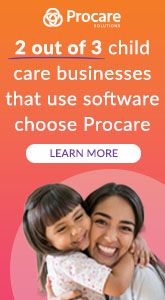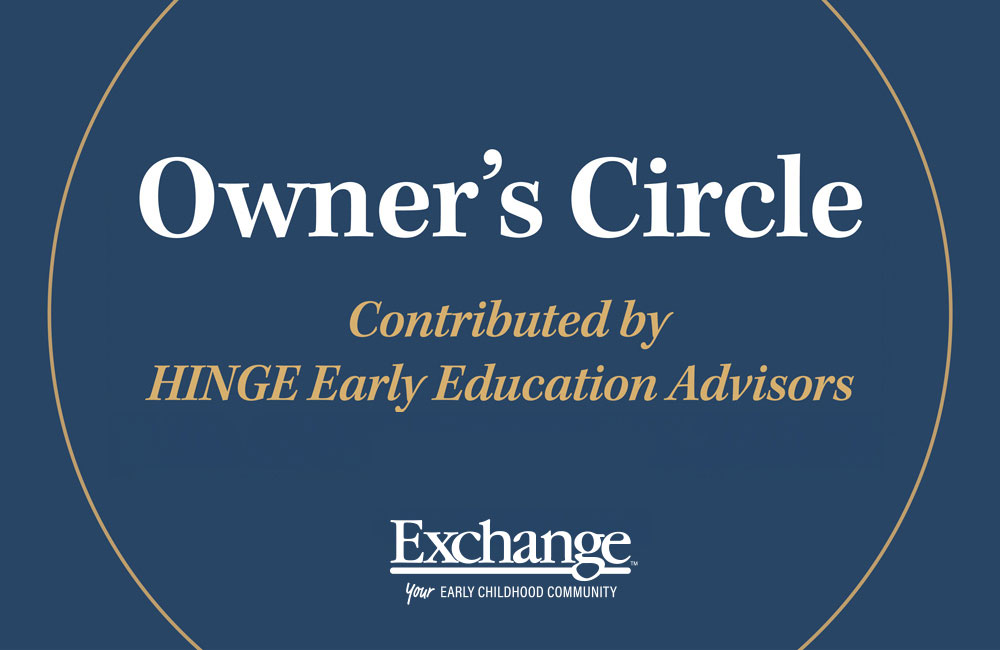As the education manager for a Head Start and Early Head Start grantee, I work with education coordinators and teaching and home visiting staff around the Chicagoland area. My role is focused on ensuring high quality education and disabilities services to children and families; I am responsible for developing passionate, intentional educators that make a positive impact in the lives of their children and families. I had to rely on all my leadership skills when COVID-19 hit (and I mean REALLY hit) and changed everything in our organization (as I am sure is true throughout the entire early childhood field).
As a leader, whenever I am faced with huge challenges, I turn first to my faith. It centers me. It allows me to know I am trusting in someone larger than myself. Then, I also rely on what I think of as my circle of love. I like to envision a bullseye, where I am in the center, and the circles surrounding me are my immediate family, then my extended family, then my friends and co-workers and colleagues. They are all people who give me strength because I love them and I am confident of their love.
I have education and disabilities coordinators on my team, each with varying responsibilities. When we first closed, we all thought it would be for two weeks, but as of today (early June), we are still closed and all of us are working remotely. COVID-19 has hit my team in different ways. One coordinator is taking care of elderly parents with health issues. Another is trying to work with small children at home. I decided early on to send daily check-in texts to each person, just asking, “How are you doing” and offering some encouraging words.
When we have meetings now, I never start with the agenda. I start with “How are you doing personally?” With so many Zoom meetings, it has been hard for my coordinators when their families (especially their young children) want attention during meetings. One thing we have implemented is what we call a “full team meeting.” We define the “full team” as all of our staff and each staff member’s family. During that 15-minute check in time, children and elderly parents all join us and give us an update about how they are doing. This has been a wonderfully supportive way for us to help each other. Now, when my team member’s children want her attention during other meetings she is in, she can gently remind them that their own meeting will be coming soon!
The leadership principle behind the full team meeting idea is that compassionate leaders adjust to what is needed in each new situation. None of us has ever faced a pandemic before, so there is no rulebook. We have to be flexible, ask ourselves, “What is most needed right now?” and then find creative ways of meeting new needs.
ADVERTISEMENT
Perhaps one positive outcome from what we are all facing is that deep recognition that we are all human and that it is okay to be imperfect. In the past, we all had a tendency to wear our work ethic as a badge of honor. We would congratulate ourselves for over-working instead of stopping to consider whether what we were doing was healthy. Now, as a leader, I am much more aware of how work demands are affecting my team.
When the George Floyd murder happened, everyone in our organization got an email from our COO with this message: “I cannot begin to imagine what my Black colleagues are feeling. We are going to close the offices. We all need a mental health day.” I appreciate that example of compassionate leadership. I am trying to do the same for my staff. Some days, when I can tell that one of my team members is having a particularly hard time, I will say, “You have been to enough meetings. I will cover the meeting for you. You can skip our meeting this afternoon and just take care of yourself.” Sometimes my staff returns the favor! They will say, “Kristie, you have been to more than your share of meetings lately. We will cover the meeting this afternoon for you.” During the month of April, our grantee leadership team could tell that the entire team was just feeling battered by all the demands it kept handling, so we decided to close for two days to give everyone a chance to take a mental break and regroup.
I see a change coming for the future of early childhood leadership. I have always tried to lead with compassion, but now I am so much more tuned into each person on my team as a unique individual. And I am so much more flexible than I used to be. I think all of us will be re-thinking how work gets done. In the future, even post-pandemic, why can people not work from home more often if that cuts down on their stress level? These recent challenges are calling us to re-evaluate possibly antiquated work systems and to ask what might be better for everyone. I believe we will be able to sustain this more people-centered approach if we are intentional about it.
I see a future where we will actually move to a more balanced way of working that supports each person as a valuable and unique individual.
In light of the recent world events, I am reminded of the words of James Baldwin, “The person who finds no way to rest cannot long survive the battle.” As a leader, it’s important that I understand that staff bring their full selves to work everyday. I have to know that they are bringing their experiences, hopes, dreams, fears, anxieties, anger and confusion. It is my role to help cultivate a safe space for them to be the best that they can be in the moment. For example, I tell my staff to “feel the feelings.”What do I mean by that? It’s important to me that they know that I’m not as concerned about the deadline as I am their emotional, physical and mental health. If that means, readjusting a deadline, if it’s possible, I do that. If it’s not possible, the team steps in to assist to relieve some of the stress. It also means that I’ve learned to listen more than I talk. Sometimes, the soul needs to vent and breathe so that new information can come in and new thoughts can form. I have found when I take time for this type of connection in my meetings with my staff and staff around our grantee, the rest of the meeting takes half the time. In addition, the tasks are completed efficiently and in high quality.
Kristie L. Norwood, M.Ed., is a mom and wife. She has worked in early childhood education for over 25 years. She has been in Head Start for over 20 years. Norwood holds the position of grantee education manager for Start Early in Chicago, Illinois, where she oversees the implementation of quality education and disabilities services. Norwood is a thought leader with a focus on supporting and developing passionate and intentional educators who create positive experiences for children and their families. She currently serves on the Steering Committee for the Advancing Racial Equity Committee in her workplace. Norwood is one of the conveners of the Reimagining Our Work initiative.
Related
ADVERTISEMENT











